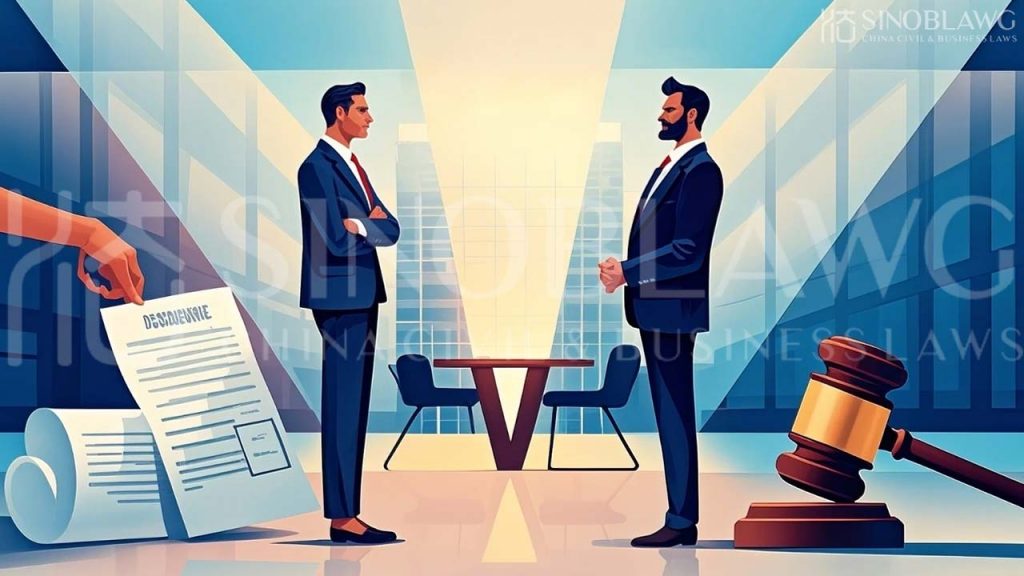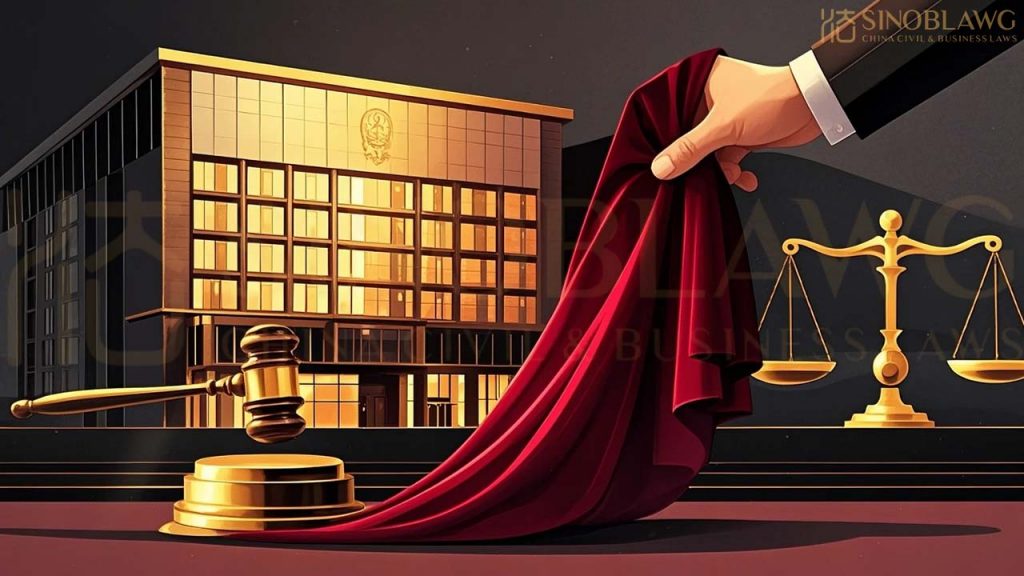A corporate client approached us recently for advice on a tricky situation as follows:
The company A has been purchasing serveral accessary parts for their machinery. These articles are purchased at inflated prices (say RMB 20) from their original manufacturer. The procurement department manager (not the general manager of the Company A) found good replacement for those accessory parts at substantially lower price (say RMB 5). However, this departmental manager didnot report such good business opportunity to the Company A. Instead, he got his parents to set up a trading company B together with his friend with his parents holding a controlling stake in the Company B. Then Company B bought these parts at RMB 5 and then sold the same at RMB 15 to the Company A. Transactions were all made in compliance with laws with due taxes paid.
Amid the office politics, the department manager was found of his secretive business in Company B. Now, the company wanted to know: what liabilities at law may be pursued against the department manager? In particular, whether such activities will constitute crime of embezzlement by employee as set out in China Criminal Code? Further, will Company A be able to recover the loss that will otherwise be saved had the department manager been loyal and honest towards Company A?
We think it an interesting and important case and therefore I have organized a debation and discussion on the case among our team members. Here is the brief summary of the seminar.
It should not constitute the crime of embezzlement of corporate properties by employee
Article 271 of China Criminal Code read “Any employee of a company, enterprise or any other unit who, taking advantage of his position, unlawfully takes possession of the money or property of his own unit, if the amount is relatively large, shall be sentenced to fixed-term imprisonment of not more than five years or criminal detention; if the amount is huge, he shall be sentenced to fixed-term imprisonment of not less than five years and may also be sentenced to confiscation of property”
In Chinese criminal law practice, to constitute the crime of embezzlement of corporate properties by employee, basically three elements shall be proved: (1) the suspect shall be an employee of the victimized company, (2) the suspect shall have the intention of embezzling properties belonging to his employer; (3) the suspect has been engaged in embezzling activities prescribed in the Article 271.
There is not much contensioin on point (1), as the department manager is easily proved to be an employee of the company. Much of debation boiled down to two closely related points (a) whether the price differrence of RMB 10 should be considered as the property of the company; (b) whether the earning of the price difference via a legally incorporated trading company should be viewed as embezzling.
While there is argument that such price difference should be deemed as the property of the company on the ground that this part of fund should otherwise remain with the company if not “embezzled”, the majority of the team tend to hold that the price difference should not be taken as company’s property on the ground that the corporate property as meant in Article 271 shall refer to those properties that are legally owned and controlled (by way of physical possession or legal right) by the Company but are deprived from the company without the knowledge of the company by the employee taking advantage of his job in the company, but in the case in question, the price difference was not sneaked without the knowledge of the company and instead, was paid upon authorization by the company as consideration for the goods, and therefore, it is more appropriate to regard the benefit of the price difference as a resullt of taking advantage of information asymmetry of the market economy rather than as a result of criminal offense. In other words, the employee did not embezzle any property of his company, rather he “embezzle” business opportunity of his company. And there is no crime penalizing embezzlement of corporate business opportunities.
While the argument in the preceding paragraph carries weight, in practice we see a different picture. There are precedent cases reported on the internet where employees in similar situation are convicted of embezzlement crime. In August of this year 2011, a case where an employee was indicted by local procurator for this crime has been widely spread. In this case, a saleman of a foreign trading company in Dongguan, Guangdong Province, got a high quote from a foreign client, and instead of reporting the good business opportunity to his company, he incorporated a trading company in HK first, and asked the foreign client to pay the price to this HK company first and then this HK company quoted a lower price to the company he worked for. In this way, he garnered a substantial price difference when his secretive practice was found. Later he was arrested and indicted. We have not seen the court judgment yet.
Personally, I believe that such offence should not be criminalized. Essentially any act that is criminalized must have violated legal obligations that are expressly prescribed or recognized by law. In our case, as said before, such conducts are in nature more appropriate to be seen as embezzlement of corporate business opportunity rather than corporate properties. While there are clear provisions in various laws prohibiting theft, vandalism, damage of properties belonging to others, there is no law prohibiting an ordinary employee from making use of corporate business opportunity or self-dealing except that corporate directors or senior managerment personnel as defined under China Company Law shall not be engaged in such unauthorized self-dealing because those directors or senior management people owe a clear duty of loyalty to the company. In other words, in the eyes of law, ordinary empoyees are not subject to a loyalty duty to their employers and not prohibited from self-dealing activities as the corporate directors or senior managerment personnel. Therefore, it is too much and inappropriate to impose criminal liabilities on such ordinary employees.






Comments